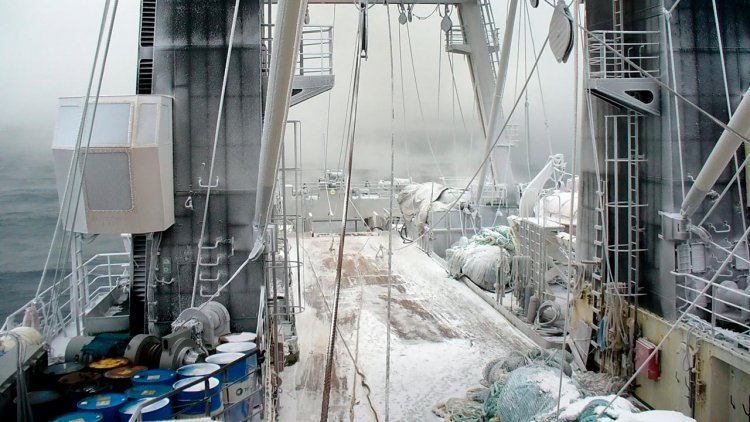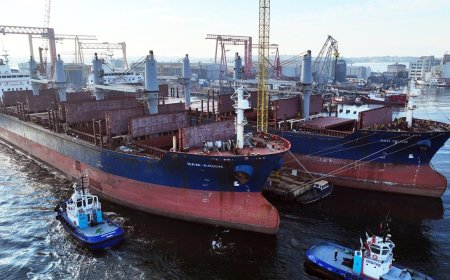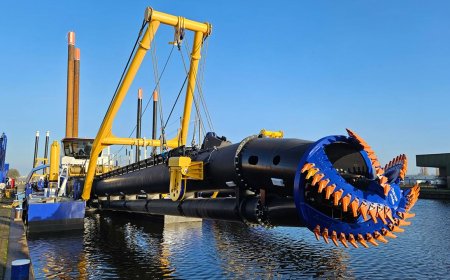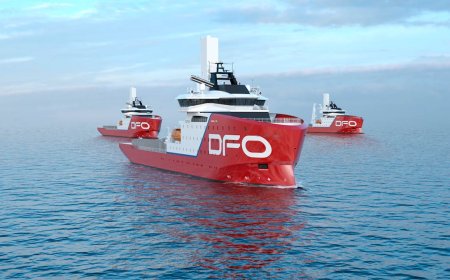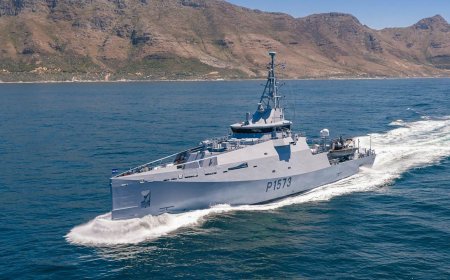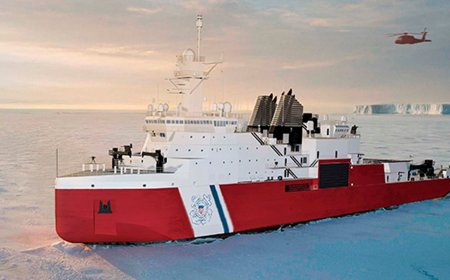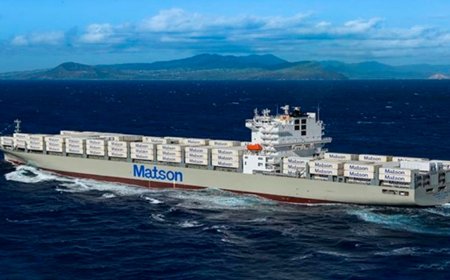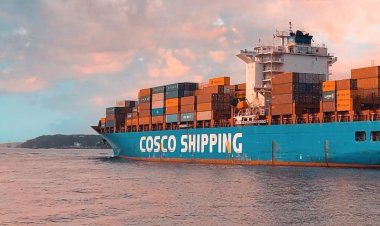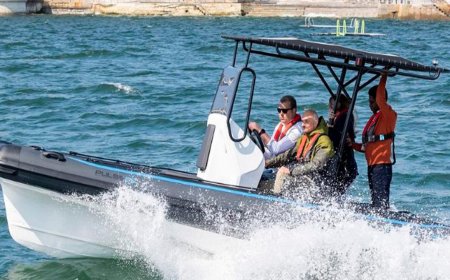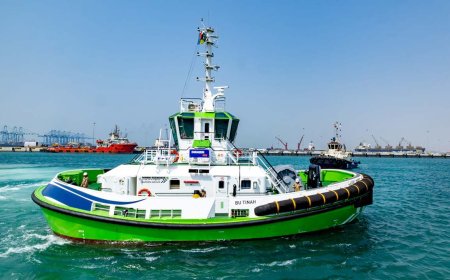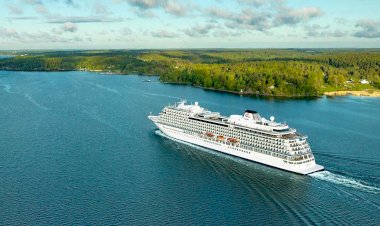Ukraine risks losing a lucrative krill fishing business in Antarctica
The catalyst for the problems has been the COVID-19 pandemic, but the main reason is totally different.
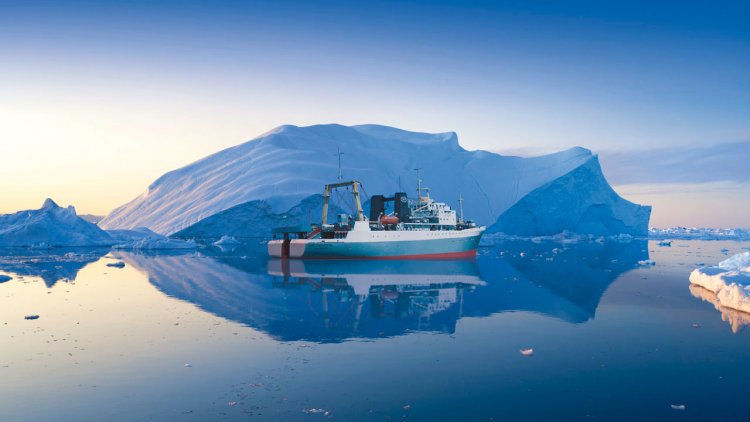
Only five countries have the right to catch krill in Antarctica
Krill - small ocean shrimps - are becoming an increasingly popular type of seafood on the international market. This species of planktonic crustaceans is actively used in aquaculture, fishing, pharmaceuticals, as well as as a food product. In particular, in 2020, krill oil became wildly popular in South Korea, which was called an extremely healthy product and recommended for postCOVID rehabilitation.
At the same time, only 5 countries are currently catching krill in Antarctica - Norway, China, North Korea, Chile and Ukraine. To some extent, this is because each state must obtain a special permit for such activities from the Commission for the Conservation of Antarctic marine living resources, CCAMLR. Without this permission, it is impossible to catch seafood within the Southern Ocean. Many countries are ready to fight for this right, and those who already have a permit are doing their best to preserve their access to Antarctic biological resources. This makes the situation in Ukraine even more incomprehensible illogical.
For Ukraine, Antarctica is an important source of seafood
Among the 12 vessels currently fishing for krill in Antarctica, just one is flying the Ukrainian flag. But the Ukrainian trawler "Cooperation Sea" is the only vessel that can produce meat directly on board, i.e. ready-made food.
The catch volumes demonstrated by this vessel are quite large for Ukraine. For example, according to the State Agency of Fisheries of Ukraine, in 2020 the total catch of aquatic bioresources in Ukraine amounted to 56,6 thousand tons.
Of them:
- 35,300 tons is the catch in all inland waters, in the Black and Azov Seas;
- 21,300 tons is the catch of krill in Antarctica.
It means, more than a third of all catches was provided by one vessel operating in the Southern Hemisphere.
However, there is a risk that this year the vessel "Cooperation Sea" will change its flag and work in favour of another country. The shipowner is actively considering this option, because, according to him, it is very difficult to develop the fishing business in terms of current Ukrainian legislation.
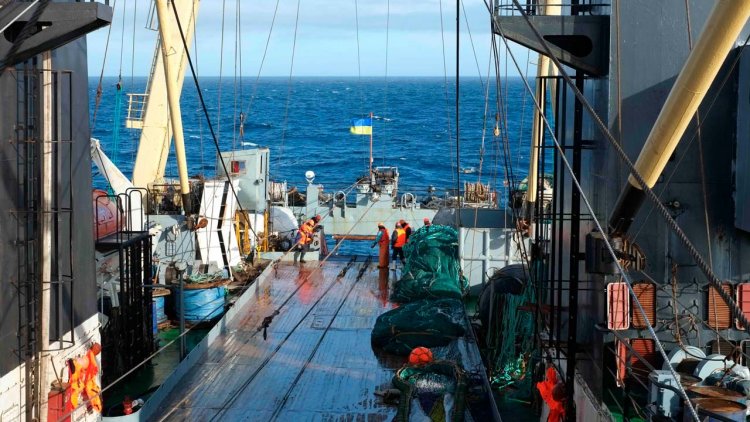
Irrational logistics kills business
It’s a question of obligatory sanitary and veterinary check of the caught seafood. According to Ukrainian legislation, a representative of the State Service of Ukraine on Food Safety and Consumer Protection (SSUFSCP) must be present during the selection of control samples. It’s not difficult to fulfil this norm in Ukraine, but if the caught products are in another hemisphere of the Earth, the implementation of the procedure becomes problematic.
Andriy Chuklyn, vice president of Interrybflot Corporation, which owns the trawler “Cooperation Sea”, says:
“Our cargo has complex logistics and passes, for example, through the ports of Chile, Uruguay, South Africa, China and other countries. We have been transporting Ukrainian veterinarians to these countries for many years so that they can be present at the control sampling. But when the COVID-19 pandemic began, such trips became impossible, so we had to act differently - not to carry people, but the product itself.
Our cargo of 500 tons of krill meat, which the customer was already waiting for in the European Union, first had to be delivered from Uruguay to Klaipeda, Lithuania. There we reloaded the cargo into other containers and sent it to Ukraine. In Odesa, Ukrainian veterinarians checked the product for quality, after that we reloaded the krill into containers and sent them back to Klaipeda. Such confusing logistics cost us about $ 600,000. Plus we had to pay a fine of 300, 000 euros for late delivery of seafood to the customer.
Our next shipment arrived in China in May 2020, but we were able to send a Ukrainian official to China only in November. The cargo arrived in Odesa in January 2021. As a result, a supposingly productive year brought us losses of $ 1.5 million.”

Which flag is more profitable to work under?
In international practice, such issues are resolved in another way. Usually, the caught fish products are inspected by laboratories that work in ports and have the appropriate licenses for such activities. When taking control samples, the captain of the vessel is present and he has the right to draw up the necessary documents.
Andriy Chuklyn says:
"For two years we have been trying to convince Ukrainian officials that the legislation should be changed and made according to the European model. We ask to allow captains to issue the initial package of documents required for delivery of products to ports and inspection. While we are fighting for this, all other Ukrainian ships have either stopped working in Antarctica or are flying the flags of other countries.
Our ship went on another voyage in December 2020 and is scheduled to be completed in July 2021. If by this time the situation in Ukraine does not change, we will re-register the vessel in another country. Most likely, it will be China, because then we can easily enter the large Chinese market, which is now developing dynamically. There is a great demand for the products we produce.
By the way, China has a national program for Antarctica, and it provides considerable governmental support for vessels fishing in Antarctica. That is what is really essential for Ukraine now.”
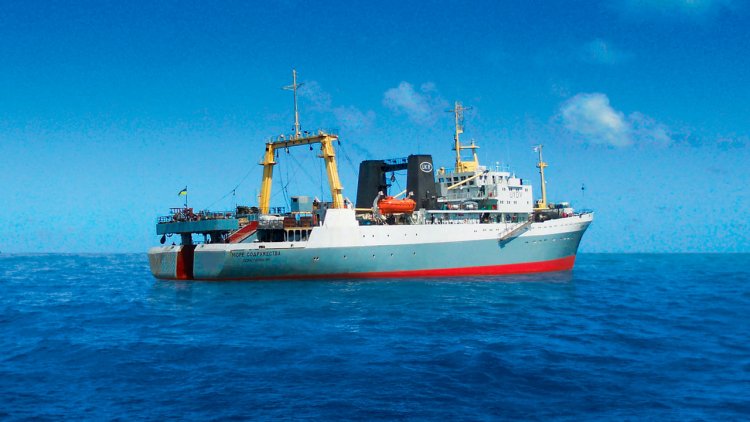
The last word is for the Ukrainian Parliament
However, there are some positive developments. As Andriy Chuklyn told SEAWANDERER, cooperation with the SSUFSCP has improved significantly since the management has recently changed. Besides, according to the relevant departments, several draft laws have been developed that can solve the problem.
Serhiy Glushchenko, Deputy Ministry of Economic Development and Trade of Ukraine, explains:
“The Ministry of Economy has developed a draft law that proposes to regulate, inter alia, problematic issues of state control measures on fishing vessels. The draft law provides for the possibility of granting the captain or other officer of a fishing vessel the authority to carry out certain measures of state control.
It is also proposed to allow the SSUFSCP to authorize the captain or other person of the command staff of a fishing or freezer vessel flying the State Flag of Ukraine to sign an international certificate accompanying cargo with fishery products imported or shipped to Ukraine.
After the adoption of the draft law, the presence of a veterinary inspector when removing control samples will no longer be mandatory. The function of a veterinary inspector may be performed by a captain or other officer of a fishing vessel who has undergone appropriate training and has been authorized by the SSUFSCP to take appropriate measures.”
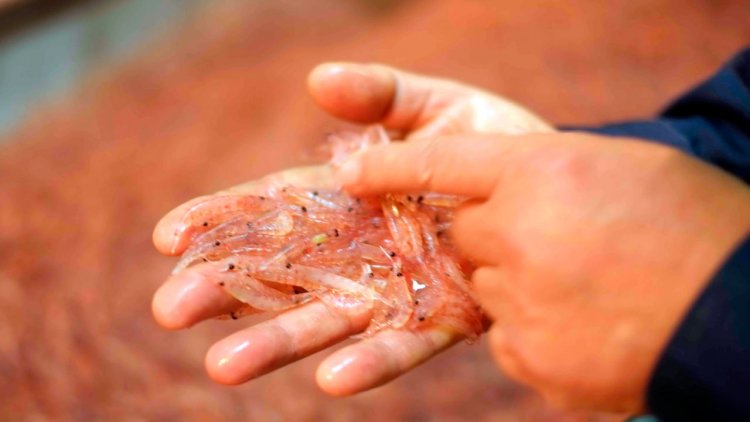
Head of the SSUFSCP Vladyslava Magaletska comments:
"The situation needs to be changed. The presence of recognized accredited laboratories in many ports makes it possible to use analysis services, but procedurally we have a conflict. It is possible to correct this only through changes to the legislation of Ukraine. The SSUFSCP supports the EU's approaches to the authorization of captains of fishing vessels and works to improve Ukrainian legislation in this direction.
The transition to international practice is desirable, especially in the current context of quarantine restrictions. Our country is confidently adopting the norms of European legislation, so we can hope for operational changes. At the initiative of the Ministry of Economy, the SSUFSCP took part in the development and approved another draft law about food and sanitary facilities. We are looking forward to receiving these documents.”
The Ministry of Economy of Ukraine reported that one of the draft laws has already received positive conclusions in the relevant committees. The next step is to consider the document directly by deputies in parliament. The Ministry expects that the draft law will be considered in the first reading within a month. With the existing support of deputies, there is a chance that it will be adopted in the second reading by the middle of this year.
by Iryna Umanets
